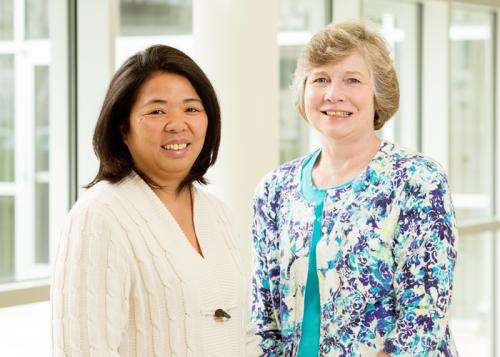Mothers raising children with autism prone to depression, stress

Mothers of young children with autism spectrum disorders experience significantly higher levels of depressive symptoms and stress than mothers of typically developing children, a study by researchers at the University of Illinois suggests.
The study involved a nationally representative group of 100 children born in 2001 and diagnosed with ASD by age 4. The children were participants in the U.S. Department of Education's Early Childhood Longitudinal Study-Birth Cohort, which collected data on more than 14,000 children's development at multiple times.
When the children were 9 months old, and again when they were 4 years of age, researchers also collected data on their mothers' well-being. At both times, the mothers of children with ASD had significantly higher incidence of depressive symptoms and stress than mothers raising typically developing children, but similar rates to those of mothers raising children with other disabilities.
More than 30 percent of the mothers raising children with ASD reported moderate to severe depressive symptoms when their children were 9 months old. That rate compared to 21 percent of mothers raising children with other disabilities and slightly more than 16 percent of mothers with typically developing children.
Mothers experiencing stress and depressive symptoms at 9 months were more likely to continue experiencing these problems into their children's preschool years, especially if their children had ASD, the data indicated.
When the children were 4 years old, rates of maternal depression/stress increased slightly among all the women. More than 32 percent of the mothers raising children who had ASD experienced moderate to severe levels of depression compared to 23 percent of mothers of children with other disabilities and 18 percent of women with typically developing children.
At both the 9-month and 4-year data-collection times – prior to and after their children's diagnoses with ASD – mothers of children with ASD and those with other disabilities reported seeking help, or reportedly were told by a health care professional to seek help for their emotional or psychological concerns more frequently than mothers of typically developing children.
"The moderate and severe levels of depressive symptoms observed in mothers of children with ASD when children were 9 months and 4 years old suggest the need for supportive interventions focused on both mother and child," said Laurie M. Jeans, the lead author of the study. "The presence of stress and depressive symptoms evident in mothers in this study should be addressed for the sake of the optimal development of children with ASD."
Jeans and her co-authors also explored whether maternal stress levels varied depending upon the children's or families' characteristics such as the child's gender, race, family size or the presence of a parenting partner. However, they found that child and family characteristics had no impact on the mothers' stress and depression levels.
"Practitioners working with families that have young children with ASD should not make assumptions based upon demographic characteristics and are encouraged to examine individual features of each family that may be contributing to mothers' stress and depressive symptoms," Jeans said.
In a separate but related study that Jeans conducted for her doctoral dissertation at Illinois, she examined the effectiveness of online discussion forums in providing a protected setting for mothers and fathers raising children with ASD to exchange information and support.
The 22 parents who participated in the project indicated that the online discussion groups were useful in helping them access new ideas and insights from parents in similar situations and in attaining a sense of belonging to a supportive community.
However, parents accessed the online groups twice a week or less, citing barriers to participation such as lack of time, family and work-related issues and technology difficulties.
Jeans conducted both studies while earning her doctoral degree in special education at Illinois. Jeans, now a professor of early childhood education at St. Ambrose University in Davenport, Iowa, is a former developmental therapist and has experience working with children with autism.
More information: "Examining ECLS-B: Maternal Stress and Depressive Symptoms When Raising Children With ASD." Topics in Early Childhood Special Education, November 2013 33: 162-171, Published online before print March 28, 2013, DOI: 10.1177/0271121413481680

















